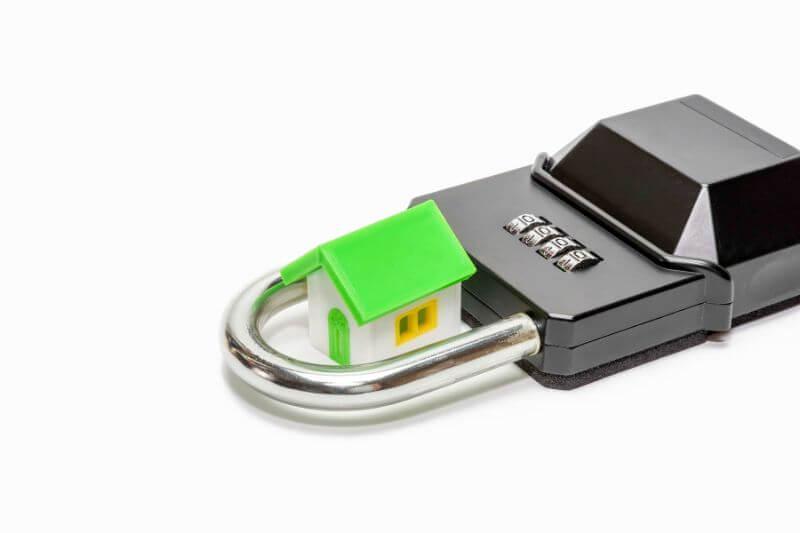British Columbians enjoy the benefit of one of the greatest land title registry systems in the world. Our provincial system combines English common law and Australian Torrens system principles, resulting in an efficient, convenient system that guarantees title and brings certainty to land ownership.
Historical Context: Uncertainty & Risk in Land Ownership
Under the original common law system, a property buyer held the responsibility of proving that the property title, a document evidencing the legal property owner, was true, correct and had not been transferred fraudulently in the past; thus, a buyer was burdened with producing all deeds for the property dating back to 40 years prior, which was known as creating a “chain of title.” Any “break” in the chain (fraudulent transfer) caused all transfers occurring after the break to be to be void and the property would revert to the last pre-fraud owner. The intention was to honor the nemo dat rule that “one cannot give that which one does not have.” This Doctrine of the Void Deed was problematic because it applied to all post-break purchases, meaning that even an innocent buyer, who diligently traced deeds and acted honestly and in good faith, could lose his property. Moreover, to create a chain, a buyer had to rely on documents produced by the seller and past property owners because property owners personally held their own deeds, which increased the potential for deeds to be lost, forged, destroyed, or stolen and increased the buyer’s risk.
Eventually, a deed registry system enabled property documents be lodged in centralized, accessible locations for public inspection and scrutiny. This recordkeeping system gave credence to the Doctrine of Notice – a presumption that a buyer has been notified of all interests in a property – despite lacking a requirement for property owners to lodge all documents with the registry. Moreover, the registry did not guarantee authenticity of the deeds, so their validity and accuracy could be challenged; thus, buyers still held the burden of proving a good chain of title.
Guaranteed Authenticity Brings Certainty to Landholding
The solution was to adopt a system that would mitigate risk and provide certainty to landholding. The title registration system achieves this by presuming that the latest property owner is the correct and true titleholder. This premise protects a buyer by guaranteeing title and eliminating any need for retrospective investigation to prove chain of title. And just like that, land ownership became uncomplicated, efficient, and economical.
The Torrens system is a type of title registration that originated in Australia in 1858 and was based upon merchant shipping registration principles. British Columbia’s Land Title Act has adopted some of these principles but has made modifications and improvements. The key elements of BC’s quasi-Torrens and current land title system are as follows:
- Requirement to Register
All interests in land must be registered at the Land Title Office to be enforceable against third parties. (Exception: leases of 3 years or less where tenants occupy the land). An unregistered interest is valid, but risky, as it renders the interest enforceable only against the parties who entered the agreement.
Note: registration centralizes recordkeeping and provides notice of interests in land to third parties.
- Modification to the Doctrine of Notice
Recall that the Doctrine of Notice assumes that a buyer has been notified of all interests on a property title. However, the British Columbia system requires interest holders to register their interest at the Land Title Office, meaning that the Doctrine of Notice is (essentially) abolished because the onus of notification is removed from the buyer and placed on the seller and/or interest holder.
Exception:
The court case Woodwest Developments Ltd. v. Met-Tec Installations Ltd. established an exception that a third-party buyer’s actual knowledge of an unregistered interest (like an unregistered lease of less than 3 years) is sufficient to make the interest enforceable against that third party buyer. (The land title system cannot be used to perpetrate fraud or willful blindness to an unregistered interest).
- Immediate Indefeasibility of Title
The most critical element of BC’s land title system is the indefeasibility of title. This means that when an honest owner purchases land for valuable consideration, the registration of that title immediately serves to prevent the title from being ‘defeated’ or destroyed by future challenges. This removes both the burden and the risk for a buyer because it reverses the Doctrine of the Void Deed (tracing chains of title) and, instead, guarantees title protection in favor of the buyer.
(Note: only a fee simple estate – and not a charge on land – is capable of being indefeasible. Lenders, therefore, assume the full risk of fraud because their mortgages are not privy to the guaranteed authenticity that comes with indefeasibility. This is why most lenders require title insurance.
However, indefeasibility can come at a cost for a pre-fraud owner. For example, Granny owns a property. Big Bad Wolf fraudulently represents himself as being Granny to sell the property to Little Red (who is not a party to the fraud and purchases the property honestly and in good faith). Big Bad Wolf vanishes with the sale proceeds (nemo dat be damned!) and, thanks to indefeasibility of title, Little Red gets to keep the property. So how does Granny recover her loss?
- Assurance
When a party loses its interest in land because of indefeasibility of title, that party can receive assurance and make a claim for monetary compensation for lost land. To be successful, the party must prove that (1) there was loss of an interest in land, (2) the interest is not recoverable by court action or by other means of compensation, and (3) if not for indefeasibility of title, the land would have been recoverable. Successful claims are paid from the publicly funded Assurance Fund, which is a managed by the Provincial Treasury.
Note: a claim may also be made against the Assurance Fund for loss or damage caused directly or indirectly by the registrar.
________________________________________________________
Summary
British Columbia’s indefeasibility of title distinguishes our land system by guaranteeing property title immediately upon registration, which entitles the public to rely on the authenticity of the records at the registry. Our quasi-Torrens title registration system promotes efficiency, clarity, organization, and openness and, in doing so, mitigates risks for property buyers. The Assurance Fund provides protection for honest victims of fraud so that all property owners can feel certain and secure with their landholdings. Even so, title insurance is recommended for all buyers and lenders as an additional layer of protection.







